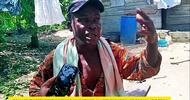A little-known provision in a sweeping deregulation package before the Indonesian parliament could fuel a new wave of speculative “land banking” by large corporations.
The funds will be used for the procurement of specific agri-commodities from smallholder farmers in Vietnam, Indonesia, Timor-Leste, Papua New Guinea and Uganda as well as the expansion of Olam’s cocoa processing facility in Indonesia.
On March 21, security personnel from the palm oil firm PT Artha Prigel clashed with farmers in Lahat district, in South Sumatra province. Two farmers were killed in the fighting, the latest flare-up in a conflict that goes back nearly three decades. Locals accuse the company — a subsidiary of the Sawit Mas Group, which supplies oleochemicals to Procter & Gamble — of stealing their land. Activists have denounced the escalation in the conflicts, saying businesses shouldn’t be taking advantage of the country’s focus on dealing with the COVID-19 pandemic to further their own — often illegal — interests.
The Digoel Agri Group has begun operating in an Indonesia mega project being fought over by investors from around the world earmarked to become the world’s largest oil palm plantation, in a vast project that has been mired in allegations of lawbreaking.
- The Gecko Project
-
24 Mar 2020
Ditengah ancaman krisis pangan akibat wabah Covid19 yang semakin meluas, petani digusur perusahaan perkebunan sawit. PT. Artha Prigel menggusur secara paksa petani di Desa Pagar Batu, Kabupaten Lahat, Sumatra Selatan. Berakibat tewasnya dua petani yang menolak penggusuran.
PT Hamparan Masawit Bangun, an affiliate to one of palm oil trader Wilmar International suppliers, has been operating illegally on community lands in Central Kalimantan, Indonesia. Now the company accused three indigenous farmers of stealing palm fruit from the land, an emblematic case of how corporations can weaponize law enforcement against communities over land disputes.
Posco International’s new zero deforestation policy comes after years of pressure from NGOs and the divestment of its shares by Dutch and Norwegian pension funds.
The Indonesian minister in charge of investments, Luhut Pandjaitan, has declared there will be no new permits for oil palm plantations in the country’s Papua region. Activists are skeptical about the minister’s U-turn, given that Luhut has been the government’s most vocal defender of palm oil industry.
The Dutch National Contact Point for the Organization of Economic Co-operation and Development (OECD) today declared a complaint from three Friends of the Earth groups (Milieudefensie (Netherlands), SDI (Liberia) and WALHI (Indonesia)) against Dutch bank ING admissible.ING has been ignoring abuses in the palm oil sector for years.
- Milieudefensie
-
20 January 2020
Pejabat pemerintah daerah mengungkapkan dugaan pemalsuan izin-izin yang melandasi proyek perkebunan sawit bernilai miliaran dolar di Papua. Tindakan ini mengindikasikan sebagai bentuk pidana yang merusak hutan dalam skala raksasa.
- The Gecko Project
-
18 December 2019
NGOs from Korea and Indonesia file OECD complaint against POSCO International for causing palm oil abuses
Indonesian government have alleged that permits underpinning a multi-billion dollar plantation project in Papua were falsified. The land is being opened up by investors whose identity is hidden behind anonymously owned companies, as part of a plan to develop an oil palm plantation almost twice the size of London in the remote region.
- Mongabay
-
10 December 2019















